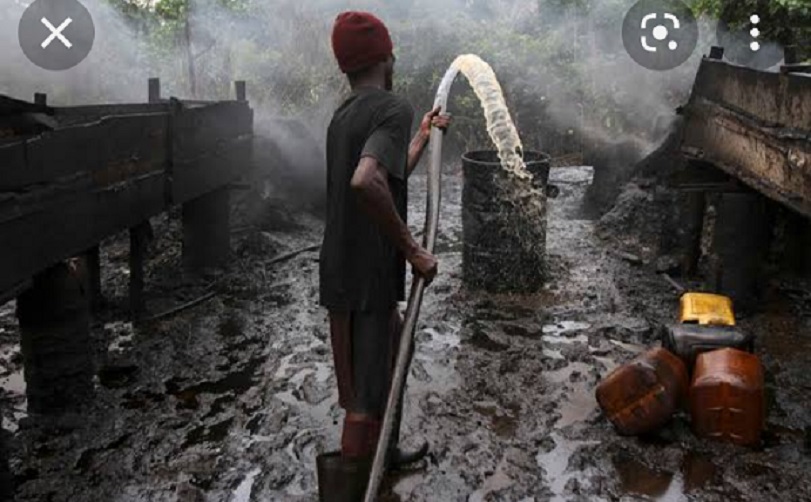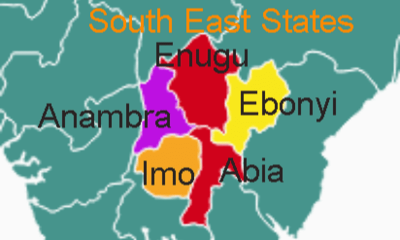General
Nigerian Army to End Operation Python Dance II October 14
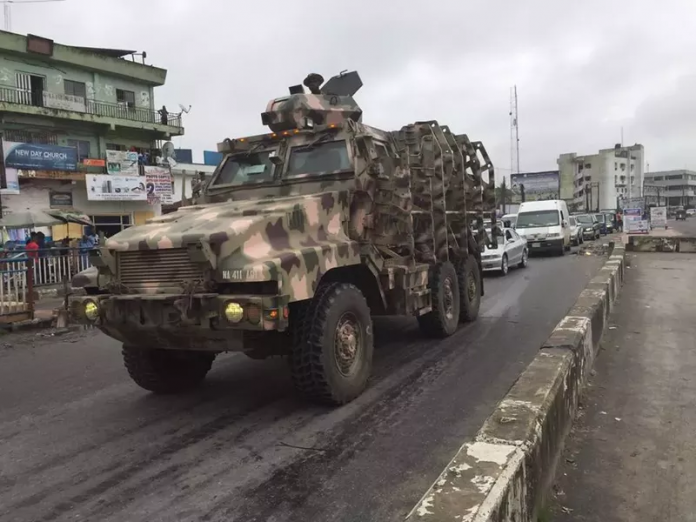
By Dipo Olowookere
The Nigerian Army has said it would conclude its Operation Python Dance II in the south east region of the country on Saturday, October 14, 2017.
Deputy Director of Public Relations at the 82 Division of the Nigerian Army, Colonel Sagir Musa, disclosed in a statement that the field training exercise code named Exercise Egwu Eke (Python Dance) II, which kicked off on September 15, 2017, is meant to sharpen the skills the troops in the conduct of internal security operations.
Colonel Musa further said the exercise was also aimed to combating the security challenges in the South East, pointing that the army was well equipped to deal with the rising cases of insecurity such as kidnappings, farmers-herdsmen clashes, cultism, armed robbery, communal crisis, violent secessionist agitations, insurgency among others.
“For emphasis, it is necessary to restate that the exercise and similar ones with different coded names in some parts of the country were deliberately initiated and conducted with an overarching aim of checkmating identified security challenges prevalent in the regions where they were carried out.
“Some of the successful military exercises include: Operation Sharan Daji in tackling livestock rustling and armed banditry in the Northwest; Operation Awatse to tackle militants and oil installation vandals in South-West, especially in the creeks between Lagos and Ogun States; Operation Shirin Harbi in addressing restiveness in the North-East, especially Bauchi and Gombe States; Op Shirin Harbi in containing the rein of killers in Southern Kaduna; Op Harbin Kunama in resolving rustling and armed banditry in forest along Sokoto-Zamfara axis and Op Crocodile Smile, popular in the South-South to combat Criminal elements engaged in the destruction of oil pipelines and installations,” he said.
The army spokesman urged law abiding citizens to go about their normal businesses without fear, emphasising that the exercise “is not targeted at any individual or group.”
Recall that the first Python Dance exercise was carried out in the South Eastern Region from November 27 to December 27, 2016.
The peculiar security challenges in the region such as kidnapping, abduction, armed robbery, farmers/herdsmen clashes, communal crisis, traffic gridlock and violent secessionist agitation among others as the targets of this exercise were successfully addressed.
The concept of the current exercise, like the previous one is purely Command Post, Field Training and Real-Time Exercise, the army said.
It added that the exercise is aimed to enhance troops’ agility and preparedness across the spectrum of contemporary and emerging security challenges peculiar to South Eastern region.
The statement pointed out that the exercise is three in one, in that – it was – deliberately designed as – a Command Post Exercise that transmuted into Field Training Exercise and where necessary dovetailed into real-time mission or activities such as anti-kidnapping drills, patrols, raids, cordon, and search, check points, road blocks and show of force.
The army said one interesting aspect of the exercise is that it is multi-agency in nature and execution.
Relevant para-military organizations such as elements of the Nigerian Police Force, Nigerian Security and Civil Defence Corps, State Security Services and Federal Road Safety Commission synergized and collaborated to ensure successful execution and attainment of outlined objectives.
Also, the non-reliance on only military line of operation to achieve the end states of the exercise was part of the texture of the strategy.
For this reason, an elaborately generous civil-military cooperation line of operation had been successfully planned and executed during this exercise, the statement said.
“In this regard, some relevant Nigerian Army Corps and Services such as the medical corps and engineers corps carried out medical outreaches, roads and schools repairs across the South Eastern region.
“On the whole, the exercise has numerous objectives. Some of which are; to practice participating units on planning, preparation and conduct of internal security operations, intensify training on counter terrorism and internal security operations as well as to deter the activities of kidnappers, cultists, armed robbers and violent secessionist agitators.
“Others are – synergizing with relevant Para- Military services to address the identified threats and sharpening the skills of troops towards curtailing current and emerging security challenges peculiar to the South Eastern region,” the Army noted.
General
NERC Unveils 3-Step Guide for Resolving Electricity Complaints

By Adedapo Adesanya
The Nigerian Electricity Regulatory Commission (NERC) has introduced a streamlined three-step process to help electricity consumers address common issues like power outages, estimated billing, faulty meters, and voltage fluctuations.
In a public advisory shared on its X handle on Tuesday, the electricity sector regulator emphasised that customers should begin by contacting their respective electricity Distribution Companies (DisCos), which serve as the primary point of contact for technical and billing problems.
Consumers are urged to secure a complaint reference number and maintain records of all interactions for efficient follow-up.
The advisory outlines the process as follows: “Contact your DisCo’s customer care – This is the first step for all technical or billing issues;
“Escalate to State Electricity Regulator (SER) – If unresolved, and the consumer is in a state that has transitioned to an SER;
“Reach NERC Call Centre – For consumers in non-transitioned states or needing further assistance. Contact options include 0201 344 4331, 0908 899 9244, or [email protected],” it said.
“We’re here to make sure your complaint is heard and addressed,” the advisory concluded, aiming to empower consumers amid ongoing challenges in Nigeria’s power sector.
This guidance comes as electricity consumers continue to grapple with service disruptions and billing disputes, highlighting NERC’s efforts to improve accountability across DisCos and state regulators.
General
Senate Passes Electoral Act Amendment Bill After Mild Row
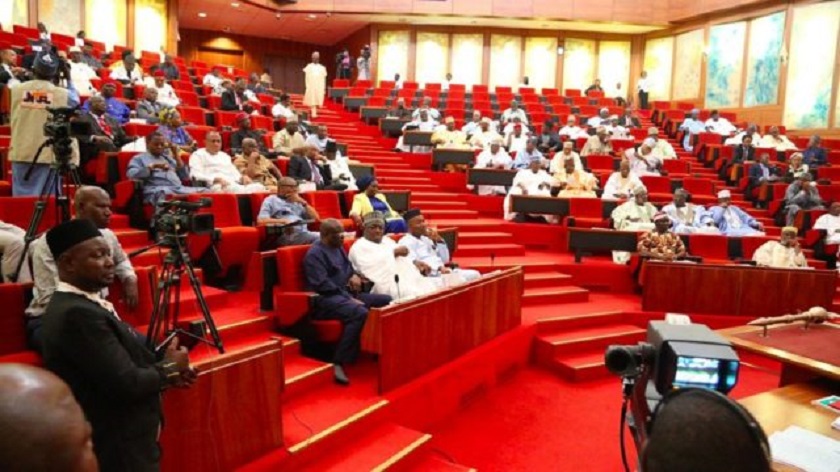
By Adedapo Adesanya
The Senate passed the Electoral Act, 2022 (Repeal and Re-Enactment) Bill 2026 on Tuesday after overcoming a rowdy session that saw lawmakers at loggerheads.
The issue in the upper chamber stemmed from a division over Clause 60 raised by Mr Enyinnaya Abaribe, a member of the opposition party, African Democratic Congress (ADC), from Abia South.
The Senate President, Mr Godswill Akpabio, stated that he believed the demand had previously been withdrawn, but several opposition senators immediately objected to that claim.
Citing Order 52(6), the Deputy Senate President, Mr Barau Jibrin, argued that it would be out of order to revisit any provision on which the Senate President had already ruled.
This submission sparked another uproar in the chamber, during which Mr Sunday Karimi had a brief face-off with Mr Abaribe.
The Senate Leader, Mr Opeyemi Bamidele, then reminded lawmakers that he had sponsored the motion for rescission, underscoring that decisions previously taken by the Senate are no longer valid, maintaining that, consistent with his motion, Mr Abaribe’s demand was in line.
Mr Akpabio further suggested that the call for division was merely an attempt by Mr Abaribe to publicly demonstrate his stance to Nigerians. He sustained the point of order, after which the Abian lawmaker rose in protest and was urged to formally move his motion.
Rising under Order 72(1), Mr Abaribe called for a division on Clause 60(3), specifically concerning the provision that if electronic transmission of results fails, Form EC8A should not serve as the sole basis, calling for the removal of the proviso that allows for manual transmission of results in the event of network failure.
During the division, Mr Akpabio directed senators who supported the caveat to stand. He then asked those opposed to the caveat to rise, to which 15 opposition senators stood.
However, when the votes were counted, the Senate President announced that 15 senators did not support the proviso, while 55 senators voted in support.
Earlier, proceedings in the Senate were momentarily stalled as lawmakers began clause-by-clause consideration of the Electoral Act, 2022 (Repeal and Re-Enactment) Bill 2026, following a motion to rescind the earlier amendment.
The motion to rescind the bill was formally seconded on Tuesday, paving the way for the upper chamber to dissolve into the committee of the whole for detailed reconsideration and reenactment of the proposed legislation.
During the session, the Senate President, Godswill Akpabio, reeled out the clauses one after the other for deliberation.
However, the process stalled when at clause 60, Mr Abaribe raised a point of order, drawing immediate attention on the floor.
This soon caused the session to move into a closed-door session.
Before rescinding the Electoral Act, the red chamber raised concerns over the timing of the 2027 general elections and technical inconsistencies in the legislation.
Rising under Order 52(6) of the Senate Standing Orders, the Senate leader, Opeyemi Bamidele, moved the motion to reverse the earlier passage of the bill and return it to the Committee of the Whole for fresh deliberations.
He explained that the development follows the announcement by the Independent National Electoral Commission (INEC) of a timetable fixing the 2027 general elections for February 2027, after consultations with the leadership of the National Assembly.
He stated that stakeholders had raised concerns that the proposed date conflicts with the provisions of the amended law, particularly the requirement that elections be scheduled not later than 360 days before the expiration of tenure.
He further noted that upon critical review of the passed bill, the 360-day notice requirement prescribed in Clause 28 could result in the scheduling of the 2027 Presidential and National Assembly elections during the Ramadan period.
According to him, holding elections during Ramadan could negatively affect voter turnout, logistical coordination, stakeholder participation, and the overall inclusiveness and credibility of the electoral process.
The motion also highlighted discrepancies discovered in the Long Title and several clauses of the bill, including Clauses 6, 9, 10, 22, 23, 28, 29, 32, 42, 47, 51, 60, 62, 64, 65, 73, 77, 86, 87, 89, 93, and 143. The identified issues reportedly affected cross-referencing, serial numbering, and internal consistency within the legislation.
General
IFMA Nigeria Gets Branch in Oyo, Picks Adejumo Olusola Babatunde as Coordinator
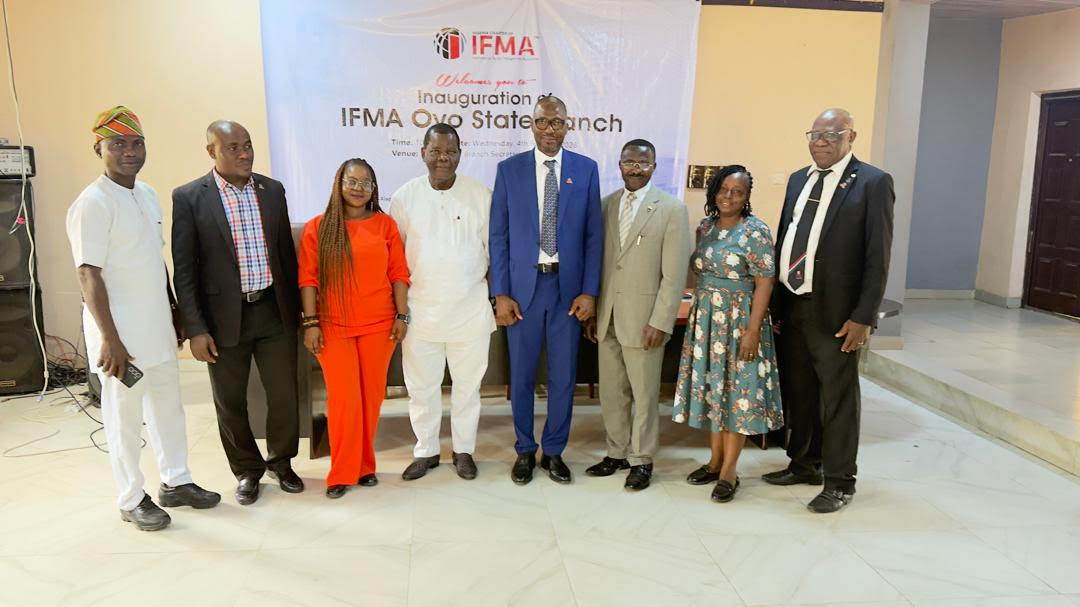
By Modupe Gbadeyanka
A new branch of the International Facility Management Association (IFMA) Nigeria Chapter has been established in Oyo State, with Mr Adejumo Olusola Babatunde chosen as Coordinator.
The organisation set up an arm in the South-West state in a bid to expand its footprint in the country. Mr Babatunde will be assisted by other executive committee members, including Mr Ajiboye Olusola Akeem as Secretary, and Mrs Adeniran Olaide as Treasurer.
At the inauguration of the branch at the Nigerian Society of Engineers (NSE) Secretariat in the Akobo area of Ibadan, the Oyo State capital, the president of IFMA Nigeria, Mr Sheriff Daramola, expressed delight at the successful inauguration of the branch and commended members for their commitment to the growth of facility management in Nigeria.
He highlighted IFMA’s global heritage, noting that the association is supporting over 25,000 members in more than 140 countries worldwide. Mr Daramola emphasised IFMA’s strong global network, the world’s largest and most widely recognised association for facility management professionals, headquartered in the United States and its growing influence in Africa, the Middle East and Europe.
“IFMA members have taken positions of authority across federal, state, and private institutions; IFMA Nigeria is positioned to ensure our professionals are the first choice for global investors entering the Nigerian market,” he stated.
The Legal Adviser of IFMA, Nigeria, Mr Sola Fatoki, who shared this sentiment, said, “Since 1997, when IFMA Nigeria was established, the association has equipped facility management professionals with integrated knowledge spanning human behaviour, infrastructure, and the built environment.”
He encouraged engineers, architects, surveyors, ITC, Technology innovators, data analysts and allied professionals to see IFMA as their professional home and outlined the functions and responsibilities of branch executive committees.
In his remarks, Mr Babatunde expressed gratitude to the national council for the opportunity to serve and pledged to ensure the success of the branch, focusing on unity and the professional advancement of stakeholders in the region.
-

 Feature/OPED6 years ago
Feature/OPED6 years agoDavos was Different this year
-
Travel/Tourism10 years ago
Lagos Seals Western Lodge Hotel In Ikorodu
-

 Showbiz3 years ago
Showbiz3 years agoEstranged Lover Releases Videos of Empress Njamah Bathing
-

 Banking8 years ago
Banking8 years agoSort Codes of GTBank Branches in Nigeria
-

 Economy3 years ago
Economy3 years agoSubsidy Removal: CNG at N130 Per Litre Cheaper Than Petrol—IPMAN
-

 Banking3 years ago
Banking3 years agoSort Codes of UBA Branches in Nigeria
-

 Banking3 years ago
Banking3 years agoFirst Bank Announces Planned Downtime
-

 Sports3 years ago
Sports3 years agoHighest Paid Nigerian Footballer – How Much Do Nigerian Footballers Earn




